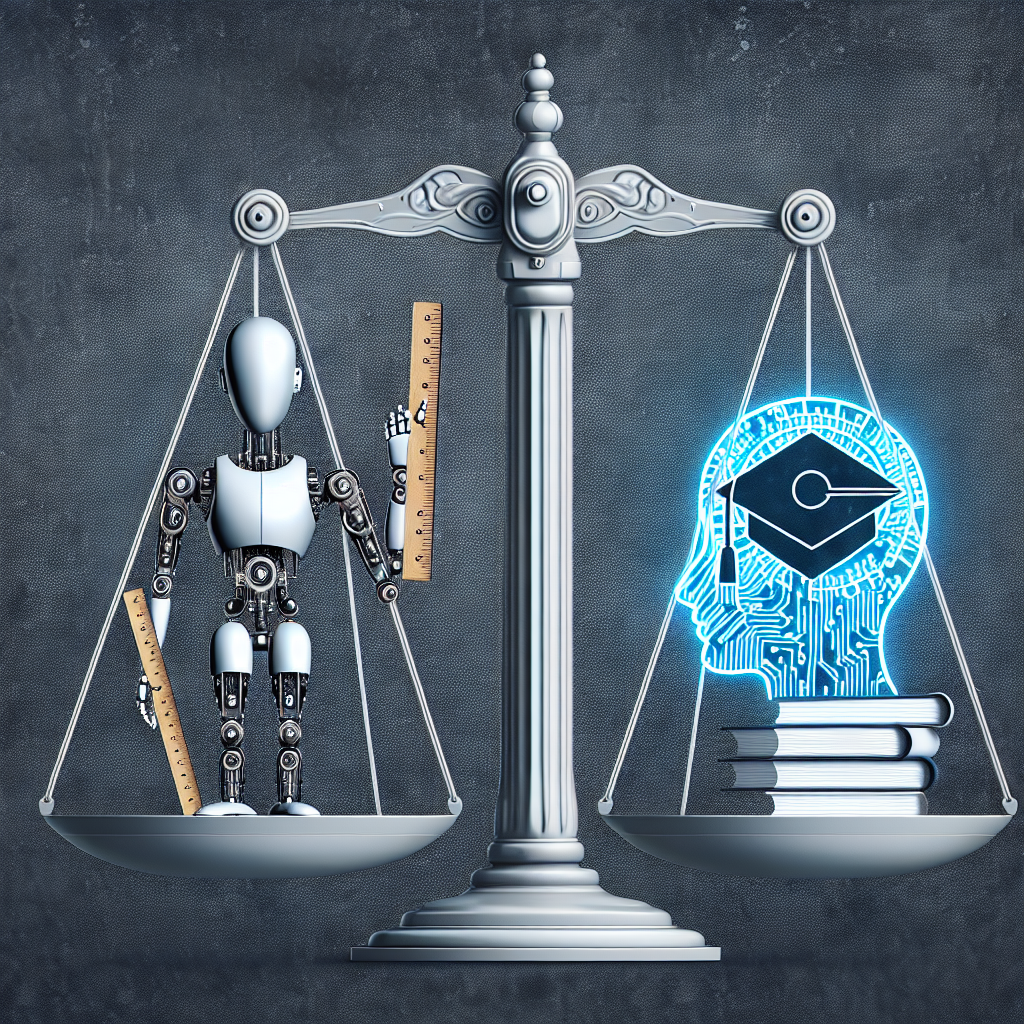The Ethics of AI in Student Discipline
Artificial intelligence (AI) has permeated nearly every aspect of our lives, from the way we shop online to the way we communicate with friends and family. In recent years, AI has even made its way into the realm of education, particularly in the area of student discipline. While AI has the potential to streamline disciplinary processes and make them more efficient, there are ethical considerations that must be carefully examined before fully implementing AI in student discipline.
One of the main ethical concerns surrounding the use of AI in student discipline is the potential for bias. AI systems are only as good as the data they are trained on, and if this data is biased in any way, the AI system will likely produce biased results. For example, if an AI system is trained on disciplinary data that disproportionately targets students of color, the system may unfairly target these students for discipline in the future. This can perpetuate existing biases and lead to further discrimination against marginalized groups.
Another ethical concern is the lack of transparency in AI decision-making. Unlike human decision-makers, AI systems operate using complex algorithms that can be difficult to understand. This lack of transparency can make it challenging for students and parents to understand why a particular disciplinary decision was made, leading to feelings of frustration and mistrust. Additionally, if an AI system makes a mistake, it can be difficult to hold the system accountable or correct the error.
Additionally, there is a concern about the potential for AI systems to infringe on students’ privacy rights. AI systems often collect large amounts of data about students, including their behavior, academic performance, and personal information. This data can be used to make disciplinary decisions, but it also raises concerns about how this data is stored, accessed, and shared. Students and parents may worry about the security of their data and the potential for it to be misused or shared without their consent.
Despite these ethical concerns, there are also potential benefits to using AI in student discipline. AI systems can help schools identify patterns of behavior that may indicate a need for intervention, such as bullying or substance abuse. By analyzing large amounts of data, AI systems can help schools identify at-risk students and provide them with the support they need to succeed. Additionally, AI systems can help schools track disciplinary trends and evaluate the effectiveness of their disciplinary policies, leading to more fair and consistent outcomes.
To navigate the ethical considerations of AI in student discipline, it is important for schools to establish clear guidelines and protocols for the use of AI systems. Schools should ensure that AI systems are trained on unbiased data and regularly audited to identify and correct any biases that may arise. Schools should also prioritize transparency in AI decision-making, providing students and parents with information about how disciplinary decisions are made and the data that is used to inform these decisions. Additionally, schools should prioritize data security and privacy, implementing robust security measures to protect student data and ensuring that data is only shared with authorized individuals.
In conclusion, the use of AI in student discipline has the potential to improve the efficiency and effectiveness of disciplinary processes, but it also raises important ethical considerations that must be carefully addressed. By prioritizing fairness, transparency, and privacy, schools can harness the power of AI to support students and create a more inclusive and equitable learning environment.
FAQs
Q: How can schools ensure that AI systems are unbiased in student discipline?
A: Schools can ensure that AI systems are unbiased by carefully examining the data that is used to train these systems. Schools should look for any patterns of bias in the data and work to correct these biases before implementing the AI system. Additionally, schools should regularly audit AI systems to identify and correct any biases that may arise over time.
Q: How can schools promote transparency in AI decision-making?
A: Schools can promote transparency in AI decision-making by providing students and parents with information about how disciplinary decisions are made and the data that is used to inform these decisions. Schools should also be open to feedback and questions from students and parents about the AI system, and be willing to make changes based on this feedback.
Q: How can schools protect student data and privacy when using AI in student discipline?
A: Schools can protect student data and privacy by implementing robust security measures to safeguard this data. Schools should only collect data that is necessary for disciplinary purposes and should limit access to this data to authorized individuals. Additionally, schools should obtain consent from students and parents before collecting and using their data for disciplinary purposes.

